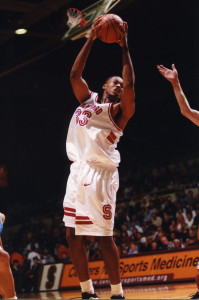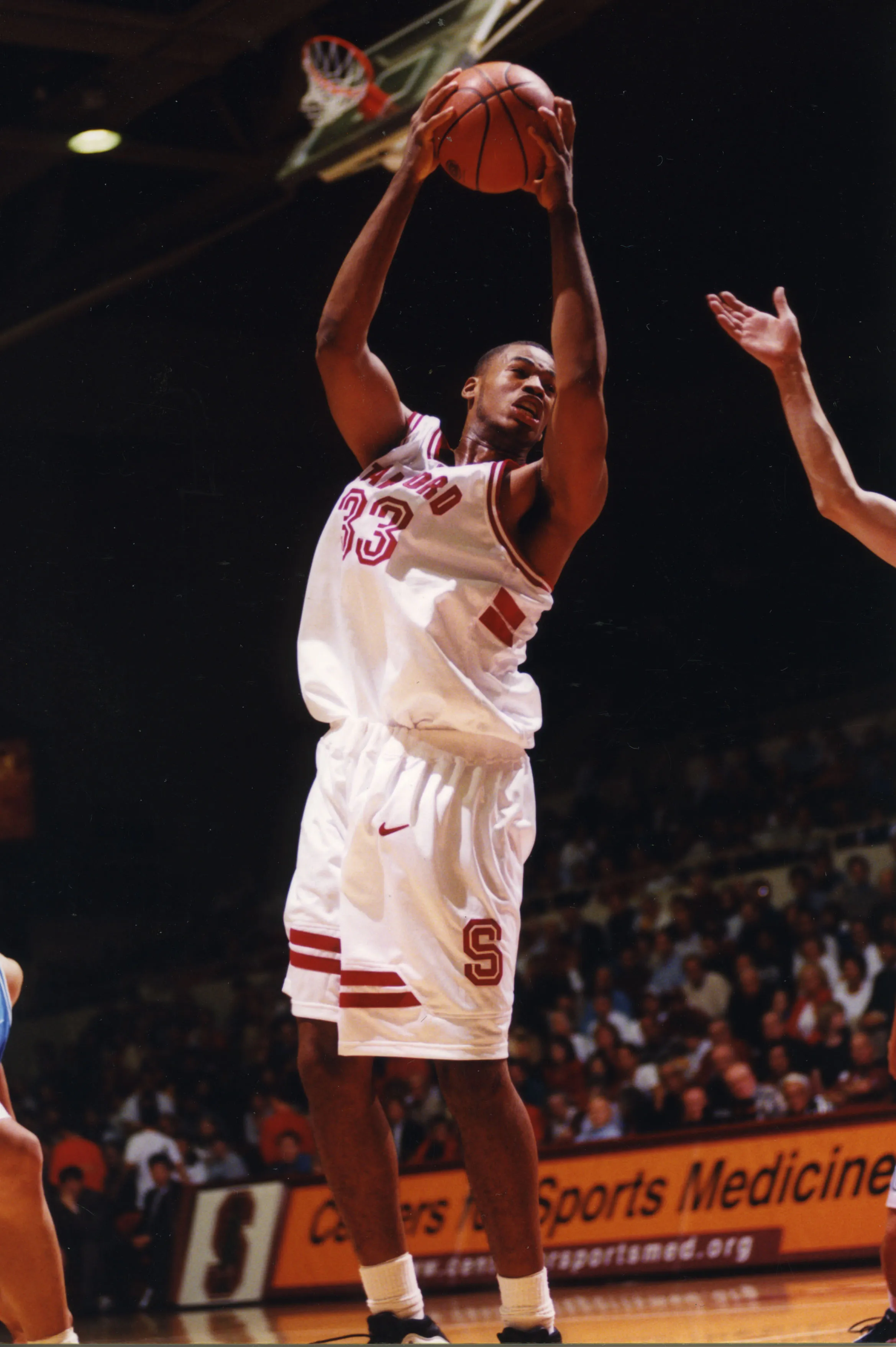As former Stanford basketball star Jason Collins ’01’s announcement that he is gay continues to reverberate around the nation, Stanford community members reacted with surprise and pride to the news that the first openly gay active male athlete in a major U.S. professional sport was a Stanford graduate.

“It really makes me proud to hear that Collins competed for Stanford and that we have that aspect of our lives in common,” said Noah Garcia ’14, an openly gay member of the men’s swimming and diving team.
Collins was a member of the Cardinal basketball team from 1997-2001 before being drafted 18th overall by the Houston Rockets in the 2001 NBA Draft. Collins is currently a free agent after playing for the Boston Celtics and the Washington Wizards during the 2012-13 season.
In a first-person Sports Illustrated article released on Monday morning, Collins wrote, “I am a 34-year-old NBA center. I’m black. And I’m gay.” He went on to detail the process of coming to terms with and publicly expressing his identity.
Former teammates express shock, support
Collins’ announcement came as a surprise to some former teammates. Julius Barnes ’03, who played with Collins for two seasons, said he “did a double take” after seeing the news on ESPN.com.
“I just never knew, not that it would make any difference at all,” Barnes said.
Barnes said that he has also been in contact with other teammates, who he described as “still in shock” but also cognizant of the emotional weight lifted by Collins’ announcement.
“To say the least, it takes a brave and courageous person to do what he’s done,” Barnes said. “I know for a fact that his former teammates and anybody that knows Jason is 100 percent behind him.”
Current Stanford basketball assistant coach Mark Madsen ’00 MBA ’12, who played alongside Collins in college and as a professional, called Collins “one of the greatest people you will ever meet in your life” in a statement.
“Basketball does not define Jason Collins. His decision to come out publicly doesn’t define Jason Collins,” Madsen wrote. “What defines Jason, is he is a first-rate human being who made a huge contribution to this University, and every team or community he has been a part of.”
Continuing the conversation
In the Sports Illustrated article, Collins wrote, “I didn’t set out to be the first openly gay athlete playing in a major American team sport. But since I am, I’m happy to start the conversation.”
Many students voiced hope that Collins’ words would help to continue to improve conditions for LGBT athletes and students on campus.
“This is really just a watershed moment, just because it’s such a public sphere and the stage that he chose to come out on is so massive,” said Nathaniel Williams ’13 M.A. ’14, community coordinator for the Queer-Straight Alliance. “It’s really great that he’s a Stanford alum and I think we’ll start to see the impact here at Stanford.”
Members of Stanford Athletes and Allies Together (STAAT), a student group that aims to create a safe space for LGBT and allied varsity and club athletes on campus, also expressed optimism that Collins’ message would encourage students and athletes to support one another.
Toni Kokenis ’14, who co-founded STAAT with Garcia, Annie Graham ’14 and Smriti Sridhar ’15, noted that female athletes and retired male competitors had come out before Collins but added that Collins’ status as an active professional athlete amplifies his message.
“It creates an environment that you can play and you can be LGBT and still be successful, and you don’t feel like you need to completely separate those and hide from yourself or your team,” said Kokenis, a member of the Stanford women’s basketball team. “It’s encouraging people to be themselves, whether they’re playing their sport or socializing with their friends.”
Following Collins’ announcement, Athletic Director Bernard Muir also released a statement in support.
“I am proud to hear that Jason, one of our Stanford sons, has taken a leadership role on this topic,” Muir wrote. “On behalf of a diverse athletic community, I hope that we progress to the point in society where truthful moments like these are no longer newsworthy.”
Garcia said that although Stanford’s culture is generally accepting of LGBT students, athletes can struggle to feel comfortable. He expressed hope that Collins’ announcement would resonate within the athletic community and spark change in the way that participants, administrators and spectators think about LGBT issues in athletics.
“Enormous personal sacrifices are involved with concealing part of one’s identity,” Garcia said. “All athletes should be able to practice and compete in an environment where these sorts of sacrifices do not have to be made—especially at Stanford.”
George Chen, Sam Fisher and Ashley Westhem contributed to this report.
